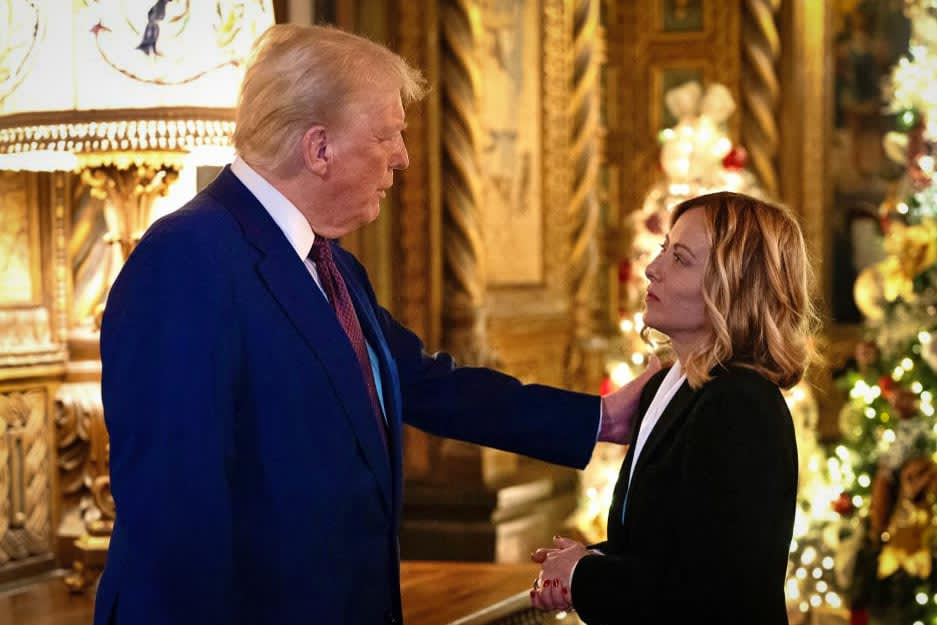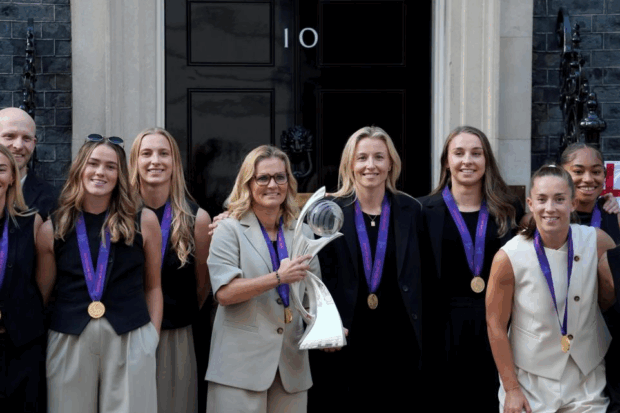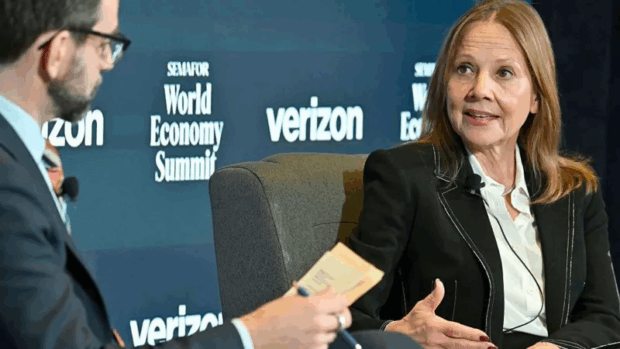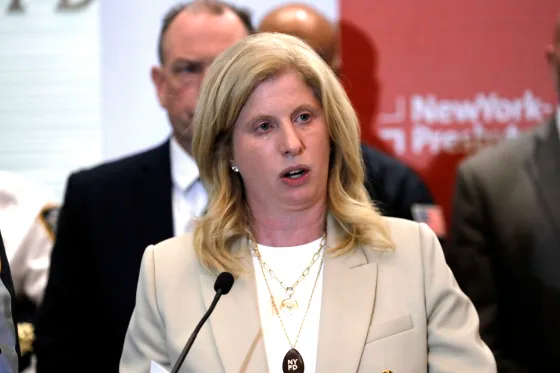
Italian Prime Minister Giorgia Meloni faced a delicate diplomatic challenge during her White House visit as she attempted to balance her ideological alignment with President Trump against her responsibilities to the European Union.
The relationship between the United States and the EU has grown increasingly strained under Trump’s administration. Meloni, part of a newer generation of hard-right European leaders with connections to the Trump administration, has cultivated a personal rapport with the president, who has described her as “a real live wire” and a “fantastic woman.” Her anti-immigration stance aligns with Trump’s policies, earning her a reputation as someone who can effectively communicate with him.
Meloni’s visit comes amid widespread international concern over Trump’s global tariff policies. Initially imposing a 20% tax on all EU goods entering the United States, Trump later reduced this to a 10% blanket rate following market turbulence. The president has boasted that foreign leaders have been “kissing my ass” to negotiate better terms.
However, Meloni’s position is complicated by Italy’s EU membership, which prevents independent trade negotiations. She must represent both Italian interests and those of the broader 27-member bloc, an organization Trump has characterized as a competitor designed to “screw” over Washington. He prefers bilateral negotiations to dealing with multilateral entities.
This places Meloni in an unofficial ambassador role for the EU, whose actual president, Ursula von der Leyen, has yet to communicate with Trump since his inauguration. Von der Leyen recently remarked that Trump’s trade war means “the West as we knew it no longer exists,” in what appeared to be criticism directed at the White House leadership.
Reports indicate von der Leyen and Meloni coordinated ahead of the Washington trip. Even centrist European figures who disagree with Meloni’s domestic policies hope she can serve as a bridge to the Trump administration.
“Everybody hopes that, but nobody knows what she’s going to be able to achieve,” said Charles Grant from the Center for European Reform.
Despite her personal connection with Trump, Italy faces challenges in meeting two of the president’s core concerns: defense spending and trade imbalances. Italy’s military expenditure stands at just 1.49% of GDP, below NATO’s 2% target. Additionally, Italy maintains a $45 billion trade surplus with the U.S., particularly in manufacturing, medical products, automobiles, and wine. This makes Rome especially vulnerable to Trump’s tariffs, as American trade constitutes about 10% of Italy’s exports.
“Whether her personal charm can overcome these problems remains to be seen—but I’m sure she will give it a go,” Grant observed.
Meloni joins a procession of world leaders seeking tariff exemptions in Washington. Recently, Japanese negotiators met with Treasury Secretary Scott Bessent and Trump himself, who personally intervened in discussions after initially imposing a 24% tax on Japanese imports. Following these talks, Trump declared “Big Progress!” on Truth Social, a sentiment echoed by Japan’s chief negotiator, Ryosei Akazawa, who expressed appreciation for the president’s direct involvement in what he called “a top priority.”

















Be the first to leave a comment